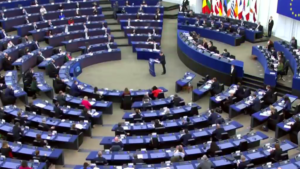These reasons are not included in the recent press release of the Council of the European Union, but some of them are among the reasons put forward by the 27 before the final decision. Among the reasons for the EU’s decision to lift sanctions on Burundi are their ineffectiveness and geopolitics. (Le Mandat)
In addition to the reasons put forward in the decision of 8 February, other justifications for the lifting of sanctions against Burundi were already highlighted by the Council at the beginning of January in the proposal resulting from the conclusions of the consultations with Burundi under Article 96 of the Cotonou Agreement which links the European Union to the Organisation of African, Caribbean and Pacific States.
The EU’s positioning in Burundi
According to the Council of the European Union, this initiative to lift the sanctions on Burundi pursues the Union’s external action objective and contributes to the political priority “The European Union as a strong global actor”. According to the Council, the revocation of sanctions should increase the EU’s influence and strengthen its position in Burundi in relation to other global actors. “Burundi is also a good strategic point to have an eye on the Great Lakes region,” says an analyst. After the lifting of the sanctions, the Council also hopes for the building of trust between the EU and Burundi and the normalization of relations, the strengthening of positive forces within Burundian power structures, as well as the holding of political dialogue between the two parties on sensitive issues.
The ineffectiveness of sanctions
This point is not mentioned by the Council of the European Union, but it is clear that the CNDD-FDD regime has managed to adapt as best it could to the absence of direct aid from the EU for about six years. Pressure from civil society, the political opposition and the armed opposition was not sufficient to make a difference. Moreover, Gitega has only partially or not at all implemented most of the conditions demanded by the European Union since 2016. In order not to continue losing ground to the Americans, Russians, Chinese and others, the European Union has decided to repeal these ineffective sanctions and continue to raise certain issues in the framework of political dialogue with Burundi under Article 8 of the Cotonou Agreement.
This is particularly the improvement of good governance, the rule of law, human rights and the business climate. According to the European Union, this is the necessary basis for sustainable development. There is also the release of political prisoners, the return of members of the opposition and civil society. The political space must be open and peaceful, with the objective of achieving reconciliation, according to the EU. It should also demand continued efforts to strengthen media freedom. Among the demands should also be the reduction of arbitrary arrests, better control by the competent authorities of violent political groups. Here the EU mentions the Imbonerakure. The EU should also demand improved accountability and transparency in certain activities of the National Intelligence Service, reform of the judicial system, as well as separation between the State and the CNDD-FDD party. The last demand is the respect of the independence of civil society or non-governmental organizations.
To encourage the government of Burundi to make further progress on these issues, the African, Caribbean and Pacific Working Group stressed the importance of maintaining restrictive measures against senior figures.
The lifting of economic sanctions against the government of Burundi was effective one month after France assumed the Presidency of the Council of the European Union. In his speech to MEPs on 19 January, Emmanuel Macron presented Africa as a very strategic continent for the European Union.

